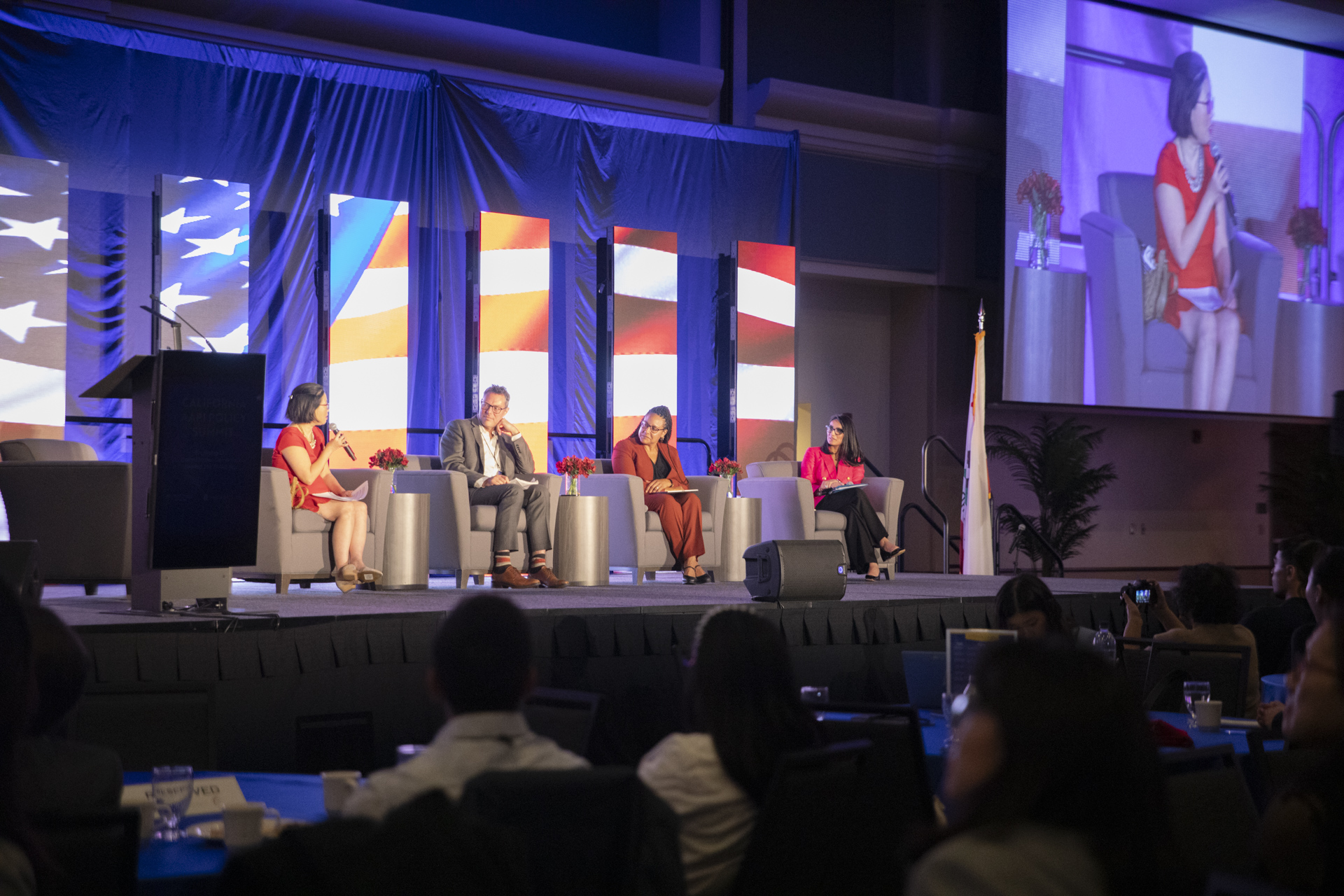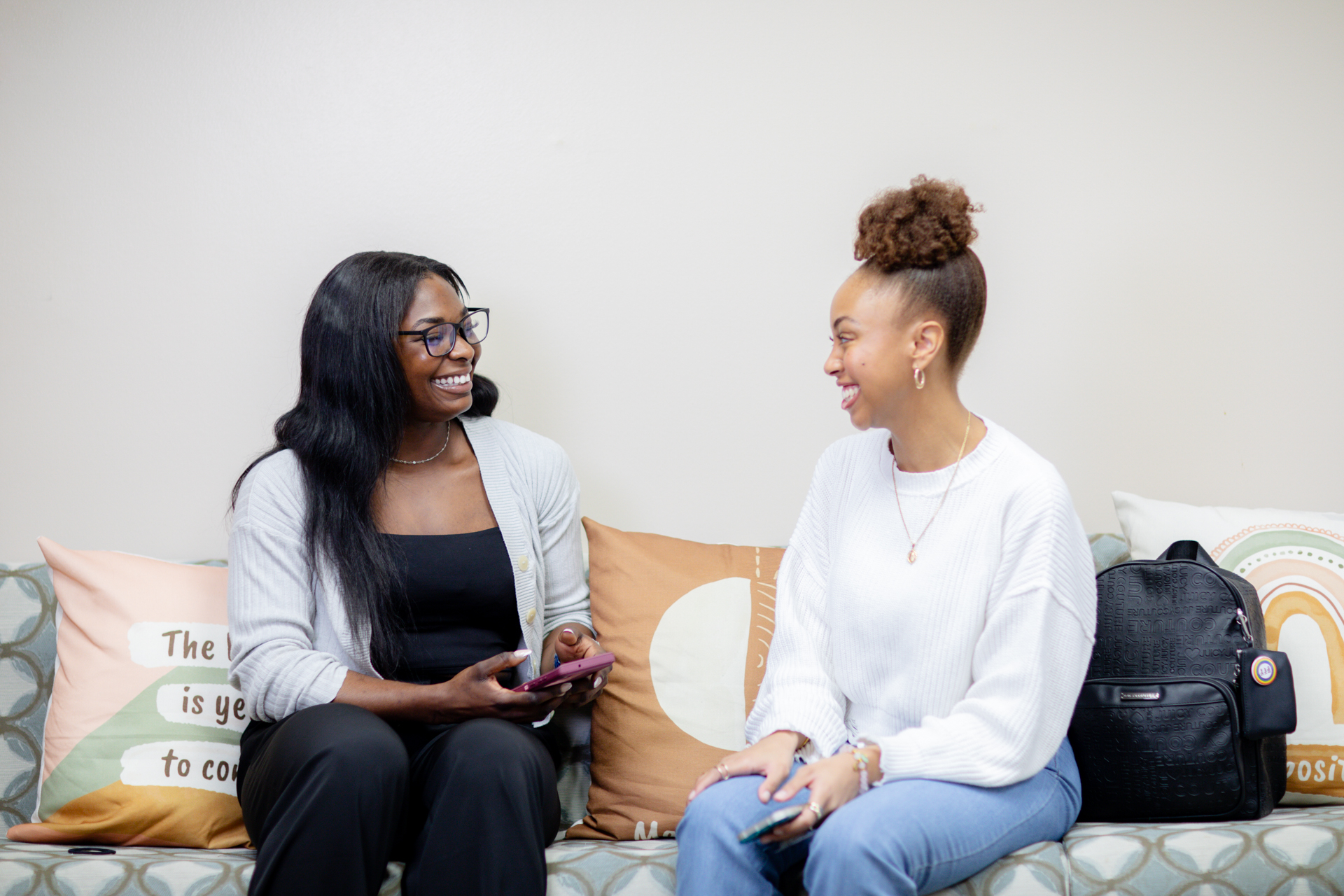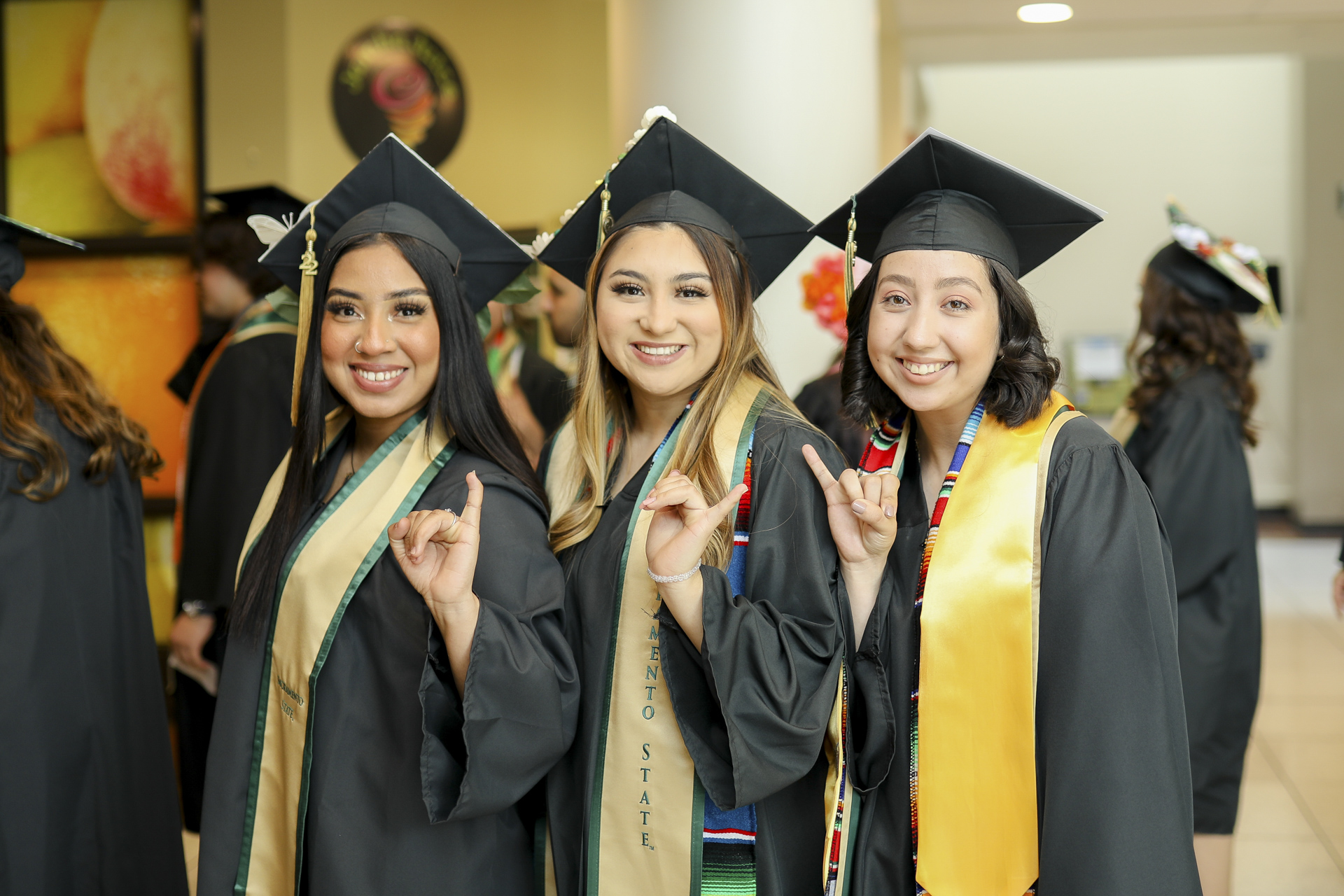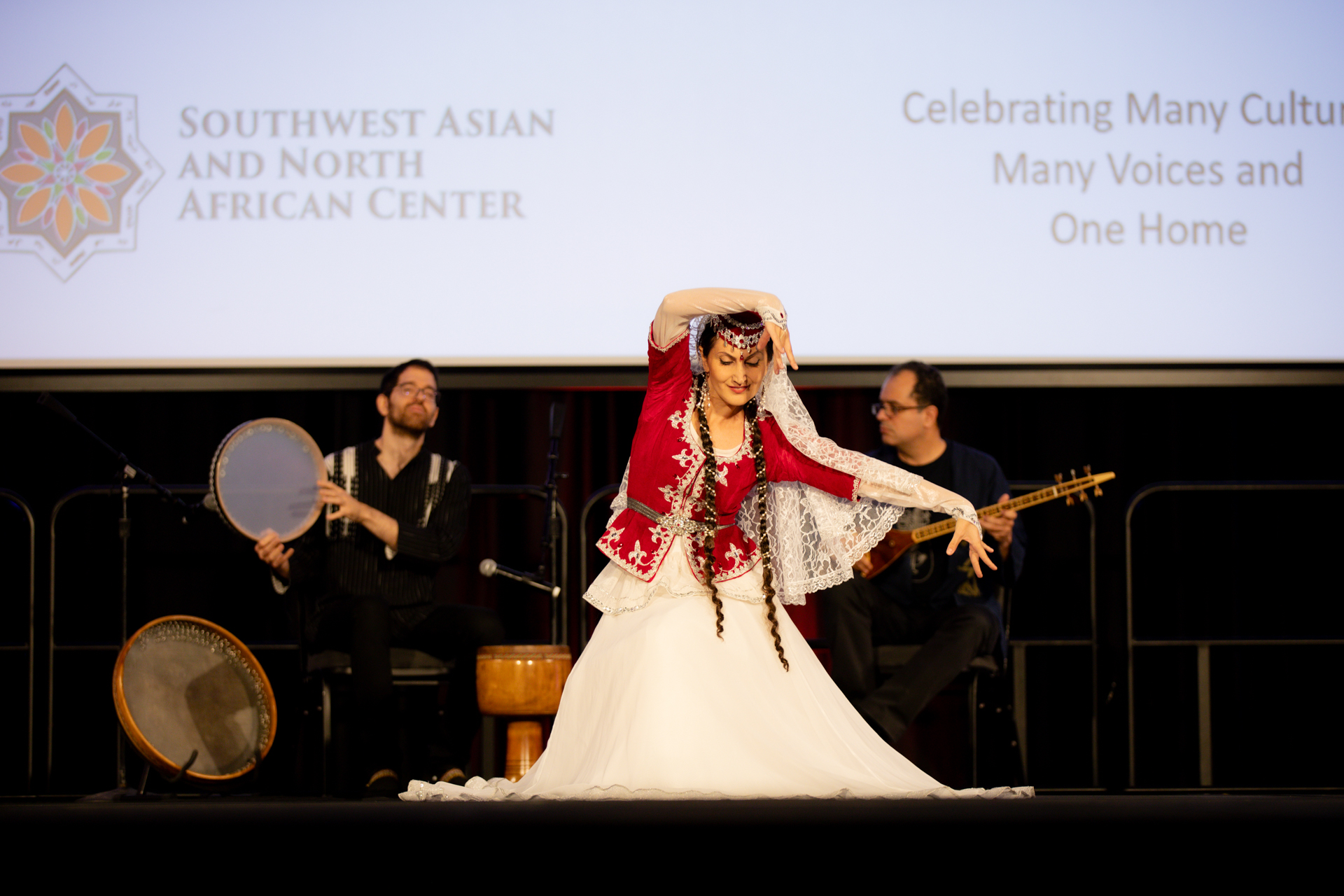Story Content
Ensuring that AAPI communities embrace voting is a key message from statewide policy summit at Sac State

September 19, 2024
More than 6 million Californians identify as part of the Asian American Pacific Islander (AAPI) community, yet they are largely invisible politically, participants in a statewide summit said on Sept. 18.
As a consequential national election looms, AAPI community leaders gathered at Sacramento State to brainstorm ideas for increasing civic engagement among members of those communities.
About 500 people attended the inaugural event, hosted by the California Commission on Asian and Pacific Islander American Affairs, the California Asian American and Pacific Islander Legislative Caucus, and Sac State.
“We are living at a time when policy and advocacy are more important than ever,’ said Aniesha Mitchell, Sac State’s vice president for Student Affairs. Ideas generated at the summit, she said, will help ensure that AAPI voices are heard in key areas, including health care, economic concerns and education.
“We come together with a shared purpose,” Mitchell said. “I cannot wait to see the impact that we will make together.”
Helen Beaudreau, a senior advisor for the White House Initiative on Asian Americans, Native Hawaiians, and Pacific Islanders, said she is a first-generation Korean American whose family came to the United States “with the dream of betterment of the next generation.”
“I believe we are all here for that reason,” she told the audience.
“Ensure that your voices are heard and your communities represented. California’s strength truly lies in our diversity. I’m confident that the ideas shared here will inspire positive change.” -- California Lieutenant Governor Eleni Kounalakis
Empowering AAPI people to vote is one of the first and most important tasks for advocates, speakers said.
Less than 2% of political spending is targeted toward AAPI voters, who are among the fastest-growing ethnic communities in the country, said Cheryl Hori, whose nonprofit agency Pacific Campaign House creates marketing strategies to mobilize underrepresented people.
“It boils down to three words: Invest in us,” Hori said.
Irvine Mayor Farrah Khan, whose city is 45% AAPI, said a growing number of these residents are registering to vote, thanks in part to concerted efforts by her office and others. But not all of those who register are exercising their right to cast ballots, she said.
“We’ve got to do a better job in getting them excited to actually vote,” she said. “If we’re not voting, we’re sitting back and letting others decide for us.”
Christine Chen, founder of APIAVote, which works to mobilize AAPI communities in electoral and civic engagement, urged participants to talk to family members and friends about voting in the upcoming election.
“We need to fight against disinformation, and make sure that people vote,” Chen said. Khan suggested hosting “ballot parties” to help make voting fun and less cumbersome.
Others discussed the importance of AAPI representations on boards and in political consulting.
Vice President Kamala Harris sent a letter of support and California Lt. Gov. Eleni Kounalakis delivered a recorded message to the summit audience.
Harris said the Biden administration has invested heavily in colleges and universities such as Sac State, which is a federally designated Asian American Native American Pacific Islander-Serving Institution. The administration, she said, has made it a priority to address inequities and expand opportunities for all people.
The state also has demonstrated its support of the API community, most recently in funding a new comprehensive CSU center that will serve Asian American, Native Hawaiian and Pacific Islander (AANHPI) students. The center, based at Sac State, will provide support to universities across the CSU in the form of grants, training, curriculum development and more, all designed to attract AANHPI students and help them graduate and launch careers.
“Ensure that your voices are heard and your communities represented,” Kounalakis said in her message to summit participants.
“California’s strength truly lies in our diversity. I’m confident that the ideas shared here will inspire positive change.”
Media Resources
Faculty/Staff Resources
Looking for a Faculty Expert?
Contact University Communications
(916) 217-8366
communications@csus.edu


